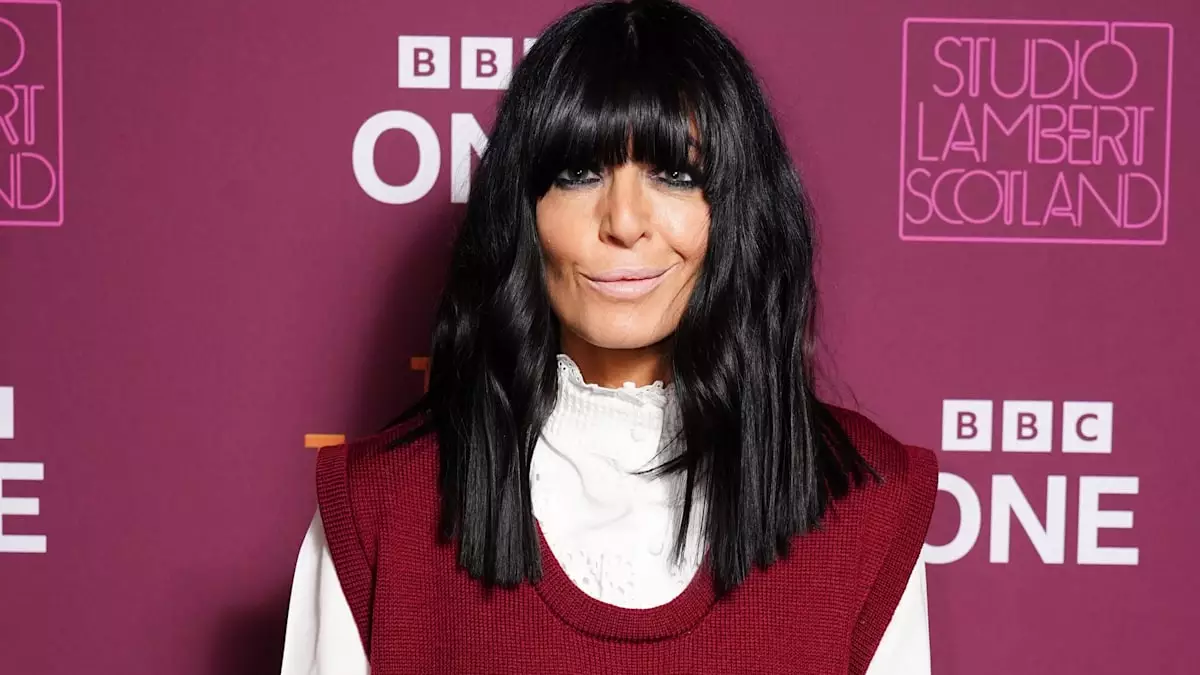In the dynamic realm of reality television, where alliances are formed and broken at the drop of a hat, the role of the host often revolves around maintaining the show’s atmosphere and relaying the rules. However, Claudia Winkleman’s involvement in BBC’s The Traitors transcends mere presentation duties. A recent revelation from former contestant Wilfred Webster unveils her unexpected position as a cheerleader for the participants, showcasing her genuine investment in the show’s outcomes. This insight highlights not only her enthusiasm but also the emotional depth she brings to the viewers’ attention, enhancing the show’s appeal.
Winkleman’s support for the contestants extends far beyond the camera’s gaze; it’s characterized by her vivacious involvement during the missions. According to Wilfred, she displayed a distinctive duality in her demeanor—encouraging and energetic when participants embarked on their tasks, yet capable of gravitas when it came time for serious discussions. This dynamic reveals how hosts can become more than facilitators; they can actively contribute to the psychological atmosphere that impacts contestants’ performances. Winkleman’s spirited participation has evidently cultivated an environment where contestants, regardless of their allegiance to being faithful or traitors, feel bolstered by her presence.
Claudia has articulated the intriguing psychological intricacies that fuel The Traitors’ popularity. The show’s format challenges contestants to navigate a minefield of deception, loyalty, and strategy, mirroring real life in intense and compelling ways. Winkleman’s insights reveal that the appeal lies not just in the game’s structure, but also in the participants’ raw emotional responses as they wrestle with trust and manipulation. It becomes evident that the producer’s choice to film in the enchanting yet isolated Ardross Castle adds a layer of intensity, setting the stage for high stakes as contestants grapple with who to believe. The psychological tension matches the viewer’s own emotional investment, resulting in a captivating narrative arc.
The complexity of alliances within The Traitors contributes substantially to its riveting nature. Wilfred’s commentary sheds light on Winkleman’s interactions with traitors and how they benefited from closer conversations. This interface not only humanizes the contestants but also elevates the viewer’s understanding of the strategies at play. Claudia’s role as a confidante for traitors adds an intriguing twist, while her apparent neutrality fosters a greater challenge for the faithful contestants. This manipulation of relational dynamics creates a web of intrigue perfect for engaging an enthusiastic audience, perpetually curious about the unfolding drama.
As Claudia Winkleman reflects on the show’s unexpected success, it’s evident that the blend of psychological complexity and emotional engagement resonates deeply with viewers. Her candid discussion emphasizes a degree of humility in acknowledging the factors that lead to The Traitors’ appeal—an element of surprise that keeps fans clamoring for more. Winkleman’s assertion that there is no definitive formula for success in the game symbolizes the unpredictability of human relationships, which is pivotal in both gameplay and viewer engagement. The absence of a formula invites the audience to be part of the uncertainty, fostering a collective experience of suspense and speculation.
Ultimately, The Traitors thrives not merely because of its structure, but because of the enthralling combination of strategy, unpredictable gameplay, and Claudia Winkleman’s infectious spirit. As the series navigates through its challenges of deceit and alliances, viewers are taken on a psychological journey filled with tension and wit. Winkleman’s dual influence—as both host and cheerleader—has proven indispensable in crafting a multifaceted experience that keeps audiences hooked week after week. This show is a remarkable testament to the power of engaging storytelling in reality television, where viewers become immersed not just in the outcomes, but in the very human elements of trust, betrayal, and community woven throughout the competition.

